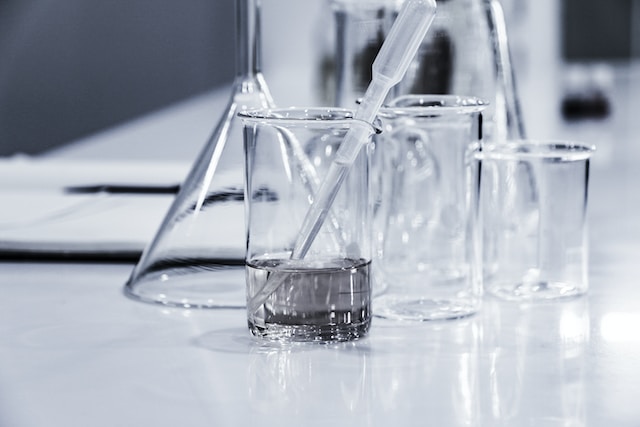Introduction:
The detrimental effects of pollution from antibiotic factories have reached a critical point, demanding immediate attention from governments, pharmaceutical companies, and environmental organizations. The unregulated discharge of wastewater contaminated with antibiotics and their byproducts has far-reaching consequences for human health and the environment. In this report, we highlight the urgent need to address the pollution stemming from antibiotic factories and the measures required to mitigate its impact.
Breaking News: A Ticking Time Bomb
Pollution from antibiotic factories has emerged as a ticking time bomb, jeopardizing public health worldwide. These factories, particularly those operating in regions with weak regulatory frameworks, release vast quantities of untreated wastewater into nearby water bodies. This discharge is laden with high concentrations of antibiotics, creating an environmental crisis with severe implications.
The overexposure to antibiotics in the environment contributes to the rise of antibiotic-resistant bacteria, rendering these life-saving drugs less effective in treating infections. Antibiotic resistance poses a significant threat to global health, leading to longer and costlier treatment options, increased mortality rates, and the potential reemergence of diseases that were once under control.
Feature Story: A Global Environmental Hazard
The environmental impact of antibiotic factories extends beyond the emergence of antibiotic resistance. The contamination of water sources has dire consequences for ecosystems and biodiversity. The presence of antibiotics disrupts the delicate balance of microbial communities, affecting nutrient cycling, soil fertility, and the health of plants and animals.
Aquatic ecosystems suffer the brunt of this pollution, with fish and other aquatic species being particularly vulnerable. The spread of antibiotics in water bodies can lead to population declines, imbalances in the food chain, and ecological instability. Additionally, antibiotic residues in agricultural fields can disrupt beneficial soil bacteria, impacting crop productivity and food security.
Opinion Piece: Time for Swift Action
The urgent need to address pollution from antibiotic factories cannot be understated. It is crucial for stakeholders to take immediate and decisive action to safeguard public health and the environment. Here are key steps to tackle this pressing issue:
1. Stringent Regulations: Governments must establish stringent regulations governing the discharge of wastewater from antibiotic factories. These regulations should include mandatory treatment processes to remove antibiotics and their byproducts, ensuring the wastewater is safe before being released into the environment.
2. Collaboration and Accountability: Governments, pharmaceutical companies, and environmental organizations should collaborate to establish transparent supply chains. Pharmaceutical companies must be held accountable for their environmental footprint, ensuring responsible manufacturing practices that minimize pollution.
3. Technological Advancements: Antibiotic factories should invest in advanced treatment technologies that effectively remove antibiotics and their residues from wastewater. Continuous innovation in treatment processes can significantly reduce the environmental impact of these facilities.
4. Public Awareness and Education: Raising public awareness about the consequences of antibiotic factory pollution is crucial. Education campaigns should emphasize responsible antibiotic use, proper disposal practices, and the importance of supporting sustainable and environmentally-friendly pharmaceutical production.
Research Techniques: Verifying Facts, Uncovering Truth
To investigate pollution from antibiotic factories and deliver accurate reporting, rigorous research techniques are essential. Here are some strategies for verifying information and uncovering sources:
1. Data Analysis: Analyze scientific studies, environmental reports, and health statistics to understand the scope and impact of pollution from antibiotic factories.
2. Expert Interviews: Seek insights from environmental scientists, public health experts, and researchers specializing in antibiotic resistance to gain expert opinions and perspectives.
3. Whistleblower Testimony: Protect the identities of whistleblowers who can provide valuable firsthand accounts of factory practices and their environmental consequences.
4. Site Visits: Conduct on-site investigations, visiting affected communities and factory locations to observe the environmental conditions, collect evidence, and gather testimonies from local residents.
Adher
ing to Journalistic Ethics: Integrity and Accuracy
In reporting on the urgent need to address pollution from antibiotic factories, upholding journalistic ethics is paramount. Journalists should:
1. Verify Sources: Rely on credible sources, fact-check information rigorously, and provide proper attribution.
2. Independence: Maintain editorial independence, ensuring the integrity and impartiality of the reporting.
3. Sensitivity: Consider the impact on affected communities and the urgency of the situation when framing the narrative.
4. Accountability: Correct any errors promptly and transparently, and provide channels for readers to offer feedback or voice concerns.
Conclusion
The pollution stemming from antibiotic factories is an urgent and pressing global issue. The unregulated discharge of wastewater contaminates water sources, contributes to the rise of antibiotic resistance, and disrupts ecosystems. By highlighting the need for swift action, employing rigorous research techniques, adhering to journalistic ethics, and delivering accurate reporting, we hope to raise awareness, mobilize stakeholders, and drive the changes necessary to address this critical environmental and public health challenge.











